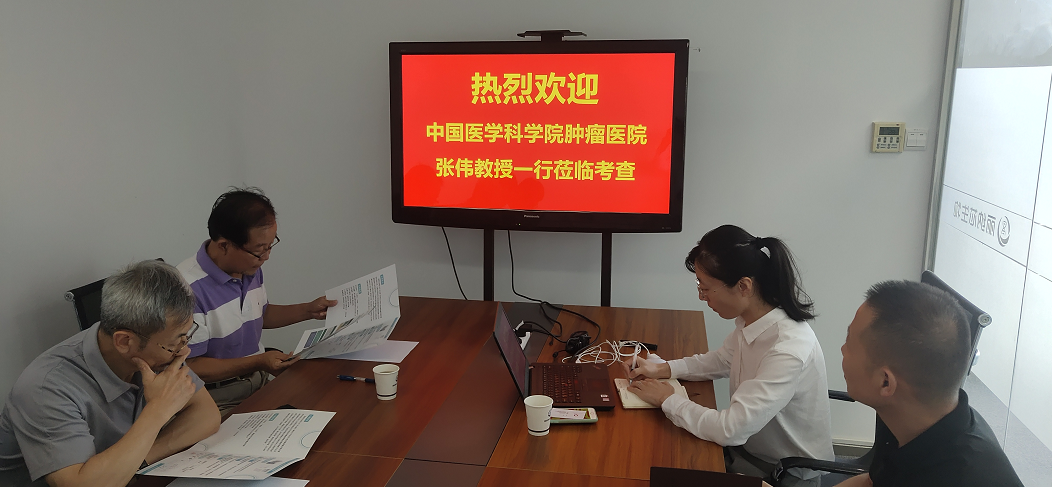
Professor Zhang Wei, Executive Vice Director of the Biological Testing Center at the Cancer Hospital of the Chinese Academy of Medical Sciences, Standing Committee Member of the Tumor Labeling Committee of the Chinese Anti Cancer Association, and Director of the Project Department of the China Cancer Foundation, visited Linaxin Biotechnology for research. The company's General Manager Tan Shengwei, as well as relevant colleagues from the R&D and marketing departments, accompanied them.

The company leader introduced fecal occult blood (Chang Lexin) ™️), Fecal gene mutation early screening product for colorectal cancer (Li Changsheng) ™️), Helicobacter pylori, transferrin and other products, including a combination of multiple methods and fecal DNA mutation early screening products for colorectal cancer, are free of colonoscopy, more accurate, no missed detection, painless and non-invasive, home sampling, home sitting and other testing reports. They can be easily screened without leaving home, with accuracy and specificity reaching 96% and 99.8%, respectively, detecting the risk of colorectal cancer 5-7 years in advance. Through listening to the introduction, Professor Zhang Wei gave full recognition and high praise to the Linaxin colorectal cancer early screening product in terms of biomarker targets, product convenience, and overall product planning! He hopes to bring health benefits to millions of households and improve the health level of the people! Professor Zhang Wei also introduced the situation of the National Cancer Foundation, hoping that the National Cancer Foundation and enterprises can work together to increase public awareness and promote the rapid development of early screening for colorectal cancer. Preliminary consensus has been reached on strategic cooperation.
Domestic Solid-State Nanopore Sequencing Makes a B...2025-11-04

Solid-State Nanopore Technology Usheres in a Criti...2025-11-04

Linaxin collaborates with Linyi Working Committee ...2025-07-24

Linaxin and Zhejiang Qianjifang have reached a str...2025-07-24

The project of Linaxin and Zheng Zheng Hospital to...2025-07-24

 WeChat service account
WeChat service account